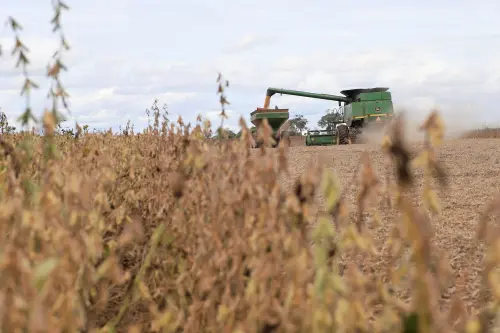In Bolivia's farm region of Santa Cruz, a fuel shortage is beginning to impact farmers' crop harvesting abilities, raising concerns in the agriculturally vital South American country.
The shortage, leading to long queues at gas stations, is a result of increased fuel demand over the past decade, coupled with declining local gas production. This situation is causing unrest in President Luis Arce's administration, which is attempting to control prices through subsidies.
Joel Eizaguirre, a soybean producer in Santa Cruz, expressed worries, stating, "If there is no fuel, producers will accumulate more debt," adding that this could lead to a shift in farming decisions with widespread consequences.
Jaime Fernando Hernandez from the ANAPO oilseed and wheat group warned of potential food losses, emphasizing that a lack of diesel for machinery could jeopardize the production of key crops like soy, corn, and sorghum, impacting livestock and poultry industries.
Government actions to address the fuel crisis include facilitating imports and enabling state energy company YPFB to negotiate with suppliers.
Eizaguirre stressed the importance of ensuring an adequate fuel supply, even if it means accepting higher costs due to the challenging exchange rate situation, emphasizing the necessity for agriculture to continue functioning smoothly.
